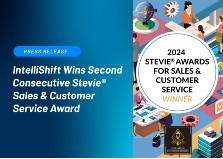In the latest episode of Straight Talk on Fleet, Erin Gilchrist welcomes Ted Chan, Corporate Fleet and Travel Manager at Schindler Elevator, to discuss the evolving role of fleet managers and the challenges they face. Chan, a finalist for this year’s Fleet Manager of the Year award, shares insights on sustainability, the future of fleet management, and how to succeed in this industry.
The Challenge: Balancing Tradition with Innovation
Fleet management has undergone significant changes. It’s no longer just about keeping vehicles running; it now requires adapting to new challenges like sustainability, technology, and efficiency. Ted Chan highlights that today’s fleet managers do more than manage vehicles. They now oversee how everyone in the company gets around. As Chan puts it, “It depends on how we get our employees moving, whether that’s in our company vehicles, rental vehicles, or, you know, an airplane. It’s all correlated to what we have as goals here, especially regarding sustainability and reducing emissions.”
This shift shows how fleet management connects to broader company goals, such as sustainability and reducing emissions. Consequently, it requires thinking beyond vehicles to create smarter, greener ways for employees to travel.
The Solution: Embracing the “Mobility Manager” Role
As the industry shifts, the fleet manager’s role is transforming into that of a “mobility manager.” This new title reflects expanded responsibilities, including managing travel, optimizing vehicle usage, and integrating sustainable practices. Chan discusses how his role at Schindler Elevator involves overseeing a fleet and managing corporate travel. He ensures that the company’s mobility needs are met efficiently and sustainably. As Chan says, “You can call me a mobility manager for a mobility company,” capturing the shift in what fleet managers do today.
Benefits of a Multi-Faceted Approach
At Schindler Elevator, sustainability is a core focus. They aim to reach net-zero emissions by 2040. To achieve this, they employ a smart combination of strategies. These include switching to electric vehicles, selecting the right-sized vehicles for the job, and cutting emissions through innovative methods.
Here are some of the benefits of managing a well-rounded fleet:
- Sustainability: Having a strong sustainability plan is essential. It’s not just about switching to electric vehicles—it also means making fleets lighter, optimizing routes, and recycling vehicle parts. As Chan says, “We really created our own playbook here because there wasn’t one to really follow as far as sustainability and electrifying our fleet,” showing how his team is leading with new ideas.
- Operational Efficiency: Chan emphasizes that being efficient isn’t just about saving money; it’s also about improving driver safety and reducing the fleet’s environmental impact. He says, “It comes down to the fundamentals, how well we’re doing as far as reducing our emissions and, of course, cost savings.”
- Driver Engagement: When vehicles are seen as important tools, drivers are more likely to take good care of them—especially if they have the option to buy the vehicle later. Chan explains, “It gives an extra incentive for our drivers to maintain their vehicle because that vehicle could be theirs in the future,” highlighting how this approach builds ownership and responsibility.
The Role of Technology in Fleet Management
Technology is a game-changer for today’s fleet managers. Ted Chan talks about how advanced tools like AI and predictive analytics are transforming fleet management. These technologies automate everyday tasks, optimize routes, and ensure compliance. As a result, fleet operations run more smoothly, and drivers’ workloads are eased.
Some key benefits of using technology include:
- Predictive Maintenance: Preventing breakdowns and extending vehicle life by spotting issues before they happen.
- Safety Enhancements: Using AI to reduce risks and boost overall fleet safety. “I think AI is going to play a role,” Chan says, hinting at how technology will shape the future of fleet management.
- Operational Insights: Getting real-time updates on fleet performance and making smart, data-driven decisions to improve efficiency.
Looking Ahead: The Future of Fleet Management
Chan believes that AI and autonomous vehicles will play prominent roles in the coming years. These advancements have the potential to transform the industry. However, he emphasizes the importance of balancing these tech advancements with the human side of fleet management. “Maybe one day, autonomous vehicles will be a real thing… but I’d rather drive myself than have a vehicle drive me,” Chan says, stressing the need to keep the driving experience in mind.
Fleet managers must continue to innovate while staying connected with their drivers and teams. Striking this balance will be crucial in navigating the challenges and opportunities ahead.
Fleet management is changing, and those who embrace new ideas, focus on sustainability, and use technology wisely will succeed in this evolving industry.
Power Up Your Fleet Management with The Straight Talk on Fleet
Subscribe to the show wherever you get your podcasts and connect with Erin on LinkedIn. You’ll be joining a thriving fleet community, gaining the edge you need to run a successful fleet.
- Actionable insights:Gain practical strategies and proven tactics directly from industry leaders like Erin, equipping you to tackle everyday fleet challenges with confidence.
- Connect with your peers:Be part of a vibrant network of fleet professionals just like you. Collaborate, share best practices, and learn from each other’s experiences.
- Shape the future of fleet safety:Have your voice heard! This is your chance to contribute to the conversation and help shape the future of safety and efficiency in fleet management.
- Together, we rise:Break down barriers and work alongside fellow fleet managers to keep your fleets safe, effective, and moving forward.





![Episode 50 Thumbnail Erin celebrates building the fleet community with 50 episodes and 11K followers on LinkedIn [Podcast]](https://intellishift.com/wp-content/uploads/2024/08/Episode-52-Thumbnail.jpg)



